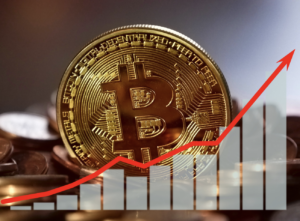The controversial case surrounding Cardinal Angelo Becciu, an influential figure within the Holy See, has reached its climax as he was handed a prison sentence of five years and six months for his involvement in a financial scandal. The trial focused on the suspicious purchase of a property in central London by the Vatican Secretariat of State during Becciu’s tenure as its deputy.
The Vatican Court wasted no time in delivering its judgment, announcing the sentencing of Becciu and eight other defendants, primarily individuals associated with financial intermediaries. Apart from the prison term, Becciu was also fined 8,000 euros and banned indefinitely from holding any future positions within the Holy See.
Becciu, a former advisor to the Pope, vehemently denied the charges and proclaimed his innocence, vowing to appeal the court’s decision. He argued that the allegations against him were a result of a calculated plot intended to bring him down. Undeterred, Becciu and his legal team, comprised of attorneys Maria Concetta Marzo and Fabio Viglione, affirmed their conviction that the truth would ultimately prevail, exonerating the Cardinal from the charges leveled against him.
At the center of this trial was a complex scheme that siphoned off a staggering 139 million euros from the Vatican’s coffers. The operation specifically revolved around the acquisition of a highly valuable property in London, orchestrated by the Vatican Secretariat of State during Becciu’s tenure as its deputy for General Affairs from 2011 to 2018. It was claimed that the original price of the property amounted to approximately 350 million euros, but the Vatican managed to sell it for only 186 million pounds (or around 214 million euros), resulting in a considerable deficit.
The financial irregularities exposed during this trial not only shed light on serious accounting issues within the Holy See but also raised questions about its transparency and governance. Furthermore, it was revealed that the transaction was exploited as an opportunity for extortion, with the perpetrators attempting to force the Vatican into making hefty payments.
The fallout from this scandal has sent shockwaves throughout the Vatican and has drawn attention to the need for increased financial oversight and accountability within its structures. The holy institution’s reputation has been tarnished as a result of this high-profile case, reinforcing the urgency for reform.
In response to the verdict, Vatican officials and religious leaders have expressed a commitment to respecting the court’s decision while emphasizing the importance of a thorough examination of the grounds for the sentence. Despite the conviction, many still maintain their faith in the innocence of Cardinal Becciu, eagerly awaiting the verdict of the appeal process.
As the trial of Cardinal Angelo Becciu draws to a close, the implications of this scandal continue to reverberate within the Vatican. The exposure of financial irregularities and the subsequent conviction of an influential figure within the Holy See have cast a shadow over the institution. Only time will tell how this trial and its aftermath will impact the future of the Vatican and its quest for transparency and integrity in its financial affairs.





